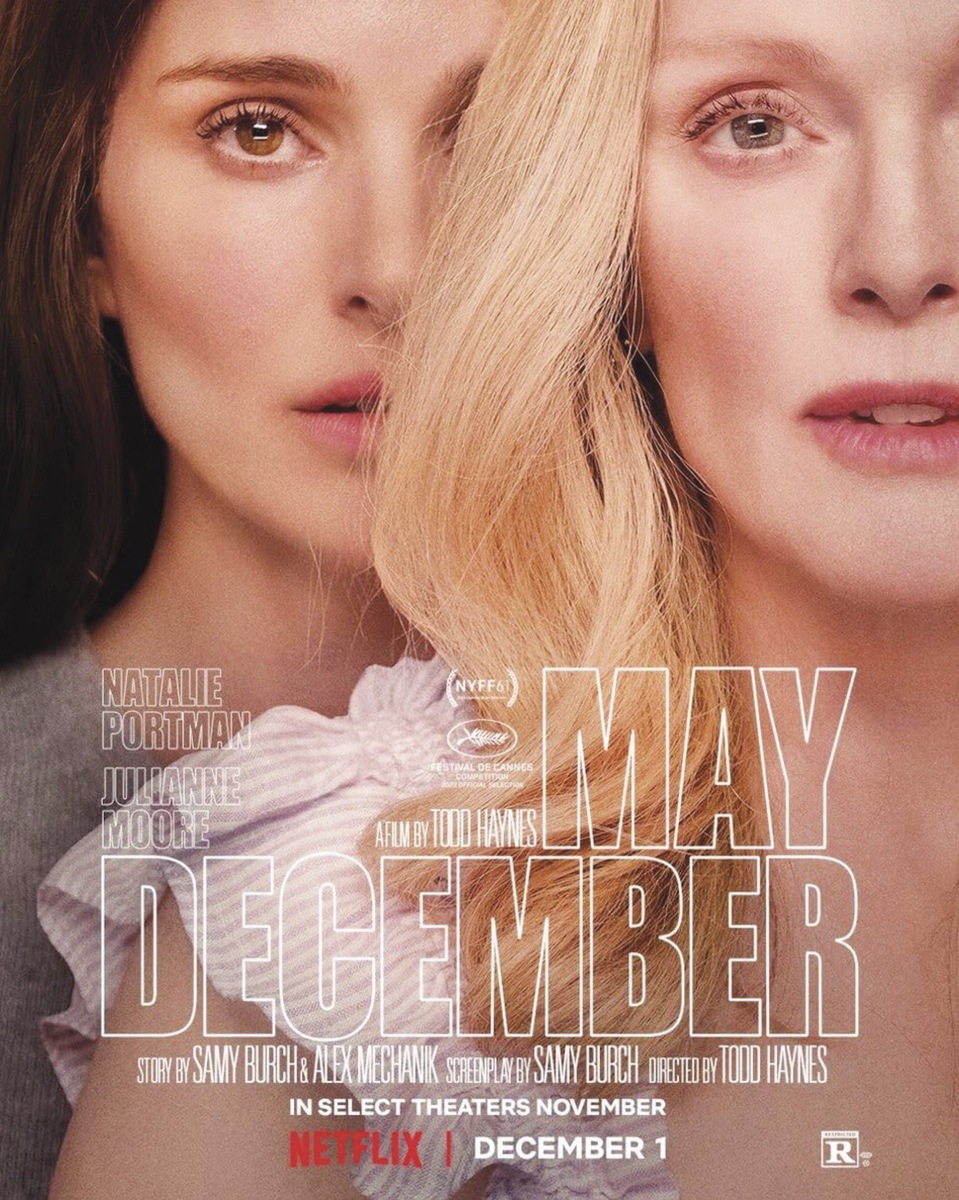Here is hoping you had a wonderful Christmas and your New Year is bright with possibilities. How does one create the opportunity for the kind of growth and change? Sometimes out of painful experiences we can be free to heal and move forward. Others continue to wallow in those feelings in order to function. This may seem like a rather heavy introduction, but it only fitting to ponder this when sitting down to watch Netflix’s May December.

In Todd Haynes’s ninth feature, we set out to answer these and more in one of his most unsettling tales. Haynes has been a manipulator of genre. From the domestic horror of Safe to the domestic melodrama in Far From Heaven, his tone never wavers off key without provocation. And with every piano strike of the score, you have to wonder; are we supposed to take this seriously? It is hard to when the music fades and we hear Julianne Moore ponder out loud, “I don’t think we have enough hot dogs.”
This wasn’t written for this film but rather a 1971 drama called The Go-Between about a forbidden love. Here is also the case, albeit one for good reason. From Samy Burch’s script from the 2020 Black List, there is only one name on our minds during this: Mary Kay Letourneau. What could have been a rather salacious Lifetime Movie of the Week becomes a harrowing exploration into not only what makes a person like her tick but also why we are fascinated with that in the first place. Natalie Portman becomes an uneasy surrogate to us as an actress looking to make a bigger splash with a juicy role as Moore’s Gracie. Our gaze becomes more jaundiced as we recognize the predatory adversary as Portman’s Elizabeth. Mirroring our own true crime addictions, the lengths she goes to pin Grace to cork board and study her not unlike Joe’s monarch butterflies.
Charles Melton, the film’s real revelation, gives voice to what anxieties this scenario implies. Victim is an apt yet loaded word, devoid of the complexities that Melton’s emotions bestow weight on. The subtlety of hunched shoulders and posture betrays his age, still a seventh grader. Every tear he sheds are years spent questioning how far he has come; watching his children graduate, feeling both peer and parent.
This is Moore’s and Haynes fifth collaboration; the third in what, I would call, their Hidden Housewives trilogy. Stories of women who are either marginalized by the modern world around them like in Safe. Or they are ostracized by a community as in Far From Heaven. In the case of May December, she becomes a fabulist who spins an exterior narrative to justify her own actions. Elizabeth has more than a challenge ahead in understanding a person like Gracie. Don’t let that baby lisp fool you; it is really a snake’s tongue.
Not so much ripped as in placed as a footnote, Rustin tells the tale of the organizer of the 1963 March on Washington. Also on Netflix, director George C. Wolfe wraps up for us the typical biopic we tread through on and on. Mind you, this is really a showcase for Colman Domingo as most vehicles are. Much like Wolfe’s previous screen outing, Ma Rainey’s Black Bottom, he can’t quite make his films feel cinematic. Starting out as a stage director, I have not been convinced at his prowess behind a camera. It is hard to not feel confined like the screen’s edge is a proscenium.
The cast is, beyond measure, one of a kind. Chris Rock, CCH Pounder, Audra McDonald, Da’Vine Joy Randolph (this year best supporting actor); the list is stacked. Even the role Jeffery Wright has is punched up by his presence. You only wish the director came to play. Maybe Spike Lee would be too harsh or Barry Jenkins too languid, but at least you would experience a mood.




